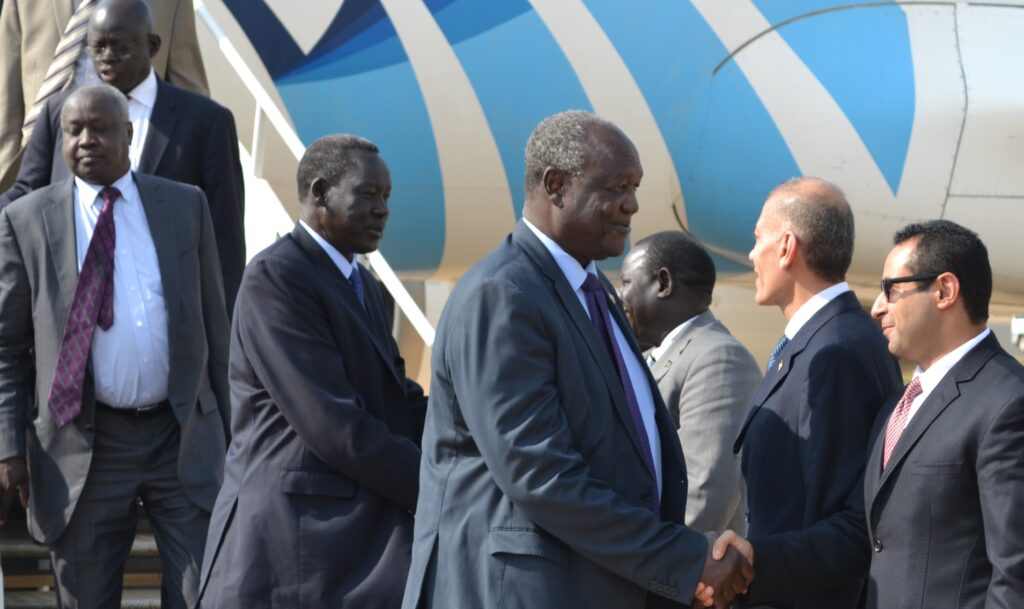The Cairo Declaration that was signed by fragmented factions of South Sudan’s SPLM party does not recognize the former first-vice president turned rebel leader Riek Machar, a senior government official said.
The reunification deal was signed in the Egyptian General Intelligence's headquarters under the auspices of Egypt’s President Abdel Fatah al-Sisi and President of Uganda Yoweri Kaguta Museveni. Egypt hosted the reunification meeting from November 13 to 16.
The agreement, which bears names of SPLM-FDs leader Pagan Amum and South Sudan’s defence minister, Kuol Manyang, is expected to expedite implementation of the 2015 Arusha reunification agreement.
Speaking to reporters at Juba Airport upon their return from Cairo today, senior presidential adviser and special envoy, Nhial Deng Nhia said the recent agreement signed in Cairo to reunify the ruling party excludes the former deputy chairman of the ruling SPLM party, Riek Machar.
“We don’t talk about Machar; we are talking about SPLM-IO under Taban Deng Gai, the First Vice President. Now there are changes in the SPLM-IO leadership and Taban Deng has been selected as the leader of the group, so we do not recognize Machar as leader of the SPLM-IO party. But Machar can only have a chance to participant in the revitalization process, and not SPLM reunification,” he said.
The senior presidential adviser pointed out that the meeting held in Cairo to reunify the ruling party included members of the SPLM Former Detainees led by Pagan Amum only. “The SPLM-IO under Taban is supporting the reunification process fully, but the SPLM-FDs group had some reservations on the reunification that’s why we went to talk to them and we managed to reach an agreement on the outstanding issues,” he added.
In 2015, delegates from three factions of the party signed a 12-page agreement in Arusha, Tanzania, laying out key steps toward reunifying the party. Those who signed include the party loyal to President Salva Kiir, the SPLM-IO led by former vice president Riek Machar, and the group made up of party officials who were detained when the conflict began in December 2013.




